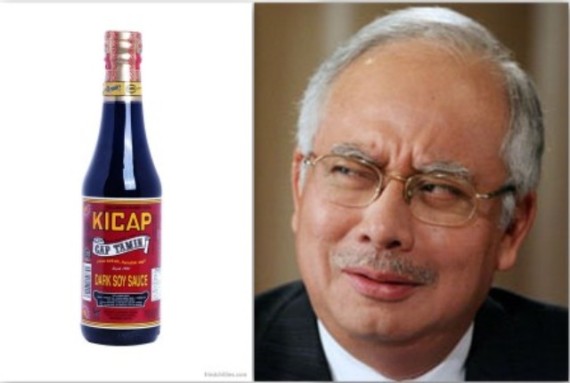Interlocking issues
Some musings of mine on the issue of Interlok ran in The Nut Graph today. I have reproduced it here in full:
The debate about the novel Interlok by Malaysian national laureate Abdullah Hussein continues to rage, but among a select few. The Malaysian Indian Congress (MIC) wants the book to be withdrawn from the Form Five syllabus for Malay literature on the grounds that the novel contains “offensive” words and depictions of Indian Malaysians. The MIC claims that the book will offend the entire Indian Hindu community, who, according to them, no longer practise the caste system.
Coming from the MIC, this smacks a little too much of hypocrisy, because I know of Indian Malaysians who still have to battle with issues of caste within their communities and families. The issue of caste has also come under scrutiny for its implications on the internal politics of the MIC. And it’s hypocritical because the MIC itself is part of a power structure that continues to practise and propagate race-based discrimination.
Interlok may or may not be right in its depiction of the Indian Malaysian community, which is taken for granted to be monolithic when it is not. But the MIC’s claim that the book highlights issues that are no longer relevant for the Indian Malaysian community is a blatant lie. It’s also a blatant form of politicking in order to win back the Indian Malaysian vote. By fighting for the rights of Indian Malaysians through this issue, the MIC is no doubt hoping that the community will forget its complicity in promoting race politics.
Selective arguments
There’s also hypocrisy from those who want the book to remain in the syllabus. These are people I follow on Twitter, traditional media columnists, as well as other writers and scholars quoted in media coverage of the issue. They claim that to censor or remove words from a published work of literature is to insult the author’s integrity. On one hand, I agree with this, because as a writer myself, I believe that the craft of writing must be respected.
More importantly, however, books, including works of creative expression, should be judged on their merits. Speculations as to the author’s intentions should not tilt the scale either way. Further to this point is the argument for free speech: something should not be censored, banned, or restricted simply because it offends some people’s sensitivities.
What would these same people who argue for the author’s integrity say about the tendency of the ruling coalition to ban any book that challenges its authority? 1FunnyMalaysia, perhaps?
- Education system the problem
My greater concern is how a national education system that is fundamentally structured to be racist can attempt to teach a text as problematic as Interlok.
This book, because of its content, is the kind of book that should help further, deepen, and intensify national discourse on race relations. It is a book that should be handled with maturity and critical yet intelligent interrogation. Precisely because it offends some people, it should be deconstructed and taught with sensitivity.
But how are we going to do this through a nationally constructed pedagogy that promotes half-truths and prejudiced views, which alters history, neglects critical thinking, and undervalues the role of the teacher and student? How can we fill our schools with racist, defeated teachers, hand them a racially problematic text, and expect these very same people to teach it with any degree of responsibility, compassion, or intelligence?
Scholastic hypocrisy
Some scholars argue that Interlok depicts the “social reality” of the time in which it was set, and thus should be studied as a realistic portrayal of Malaysian society during that period of time. The Malaysian Institute of Historical and Patriotism Studies says that Interlok is a “suitable novel for use of as a textbook for the literature component of the Bahasa Malaysia subject in Form Five because it is based on historical facts”. The National Writers Association (Pena) has come out strongly against the removal of the book. A memorandum has also been signed by several groups, including the Malay Consultation Council and Ikatan Persuratan Melayu.
Will these scholars say the same about Anthony Burgess’s The Malayan Trilogy, which is arguably one of the best novels about colonial-era Malaya? Burgess is equally scathing of all races, including the British. Will any Malay Malaysian politician champion for Trilogy to be taught in schools the way some of them are for Interlok?
In fact, as Sharon Bakar has pointed out, The Malayan Trilogy is not only not taught in our schools, it has also at one time or another been banned or restricted, presumably because it takes the mickey out of not just the Indians or the Chinese, but the Malays as well. I would like to hear scholars, politicians and writers come out in defence of this book for English Literature classes in Malaysia. I think all we would hear are crickets.
We uphold free speech only when it’s convenient, and argue for the integrity of artists and the free circulation of art only when it suits us. But let us not be gullible enough to assume that if Interlok is allowed to be taught in schools nationwide, we’ve won a small part of the battle. It might only be dispiriting confirmation that the national discourse favours the sensitivities and sensibilities of one particular group or race over another.
Add to: Facebook | Digg | Del.icio.us | Stumbleupon | Reddit | Blinklist | Twitter | Technorati | Yahoo Buzz | Newsvine
